The 2021 European Rail Safety Days have come to an end! All the recordings of this event can be found here.
Day 1 : Safety Culture -
- 12:00 - 13:00
- Registration and light lunch
- 13:00 - 13:30
- Opening: Keynote Speeches
Pedro Nuno Santos
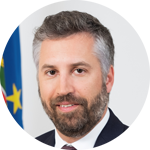
Portuguese Minister of Infrastructure and Housing
Pedro Nuno Santos was born in São João da Madeira, Aveiro, on April 13, 1977.
He holds a degree in Economics from ISEG-UTL, an institution in which he was chairman of the RGA Bureau and member of the Senate of the Technical University of Lisbon.
He began to participate in the Socialist Youth at the age of 14 and from 2004 to 2008 he was its Secretary General. During this time he fought vigorously for the legalization of the Voluntary Termination of Pregnancy and helped to launch the public debate over the issue of same-sex marriage. He is now the President of the Socialist district federation of Aveiro.
He entered Portuguese Parliament in 2005, being a member of the X and XII Legislature. He was vice-president of the Socialist Party Parliamentary Group and coordinator of the socialists in the Commission of Economy and in the Parliamentary Commission of Inquiry on the Banco Espírito Santo's resolution.
He defines himself as a Social Democrat and a staunch supporter of understandings among the parties of the Portuguese left. He was the Secretary of State for Parliamentary Affairs in the XXI Portuguese Government (2015-2019), whose main function was to manage the link between the Executive and the leftist parties that support the majority in the Parliament.
Pedro Nuno Santos is the Minister of Infrastructure and Housing since February 2019 (XXI Government and XXII Government).
Josef Doppelbauer

Executive director
Josef Doppelbauer took office in January 2015 and led the Agency to a new era as a European authority, where EU-wide vehicle authorisation, safety certification, and ERTMS trackside approval are granted.
ERA’s Executive Director is committed to a forward-looking approach and to making the railway system work better for society, while promoting the Agency, a respected authority, as the engine for change, driving the Single European Railway Area.
Josef Doppelbauer has more than 25 years experience in key aspects of railway technology, including signalling and control command systems. From 2012 to 2014, he was chairman of the European Rail Research Advisory Committee (ERRAC), the European technology platform of the rail sector. From 2011 to 2014, he was the chairman of the Steering Committee of the Joint Technology Initiative Shift2Rail. While at the helm of ERA, he has initiated the digital agenda of the Agency.
- 13:30 - 14:00
- European Rail Safety Climate Survey: High Level Results and First Learnings
Grégory Rolina
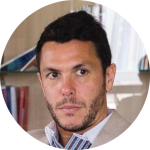
Programme manager
Dr. Grégory Rolina is programme manager at the European Union Agency for Railways. He has been leading the safety culture programme since 2017. He has a broad international experience working with safety culture and human and organisational factors in nuclear power plants and high-risk industries.
- 14:00 - 15:30
- Session 1: Safety Leadership
Heidi van Spaandonk

Manager Safety, National Policy and Data Analyses
Heidi van Spaandonk is Manager Safety National Policy and data Analyses at ProRail, the Dutch rail infrastructure manager. Heidi holds a Bachelor degree in Law and a Master degree in Safety Management in Aviation. She has been working at ProRail for 9 years and has expert knowledge on SPADS, Human Factors and integral safety management. At ProRail Heidi and her team are responsible for the integral spectrum of safety risks in rail.
Bertrand Gosselin

CEO
Bertrand Gosselin began his career at Rail Europe España, helping to create a direct distribution subsidiary of the SNCF in Madrid (1992-1994). He then joined the Main Lines TGV Department where he piloted the pricing of the TGVs between Brussels and French destinations outside of Paris (1997-1999).
Being a specialist in intermodality, he led the development of synergies within the SNCF group between Transilien, TER, Effia and Keolis, before being appointed as head of the office of the Director of the Public Transport branch (2001-2005).
Bertrand Gosselin defined the SNCF Ile-de-France Transilien offer as Director of Marketing and Services from 2010 to 2012, during which time he launched the first mobility assistance application for the whole of the Ile-de-France region and developed the Twitter accounts of the various lines.
A true expert in daily mobility, Bertrand Gosselin has been managing the daily commute of 540 000 Ile-de-France passengers on the 187 km of the "RER C" which connects 84 stops across 7 French departments in and around Paris from 2012 till 2018.
In 2018 he reconnected with the international travel business as CEO of Thalys. When the global pandemic hit in 2020, Bertrand Gosselin successfully led Thalys through the worst crisis in its 25-year history.
My first-hand experience with the railway accident of Bretigny in France had a major impact on my thinking about safety culture and safety leadership. When I joined Thalys the need emerged to foster safety leadership to shape the company’s positive safety culture. Signing the safety culture declaration and enrolling my executive committee in the pilot of the ERA leadership training were the first steps to help my management to take ownership of that safety culture. The initiative continued to develop during the covid crisis and remains key for the future of the organisation.
Manfred Haferburg
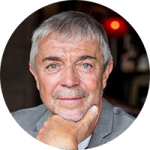
Independent Consultant
Manfred Haferburg is a nuclear engineer and a consulting psychologist. He has a background as a licensed operator of nuclear power plants. For the World Association of Nuclear Operators WANO he advised managers in 121 Nuclear Power Plants worldwide. He develops strategic services for high-risk industry operators in Safety Culture, Human Performance, Organisational effectiveness. He is member of Safety Councils in Sweden and Switzerland. He is author of the safety culture book “Out of the blue sky – about the deviousness of catastrophes” and the novel “Residential detention”.
“I am Spartacus” – the power of true leaders
What is no leadership? Six things which destroy leadership. Management and leadership. Examples of bad and good leadership. The two kinds of Fukushima-leadership. Moses and the Israelites. Famous leaders must die. Leadership-Ethics - the morals of the ancient knights. “I am Spartacus”.
Doris Horvath

Head of the Department Safety, Security and Environment
Doris Horvath graduated in Chemistry. She has worked for about 10 years as a consultant in the field of environment and safety for several companies in different fields of activities and as a quality auditor. In 2001, she joined CFL, the Luxemburgish Railways as head of the Department Safety, Security and Environment, where she contributes with enthusiasm to develop the safety culture in the CFL Group.
Alessandra Nonnweiler

Head of Communication and Spokesperson
Alessandra Nonnweiler, 49 years old, holds a degree in Business Administration, Marketing orientation, from the University of Liège. She started her career in the financial sector, specifically at ING Bank, before taking on the role of Marketing and Public Relations Manager at Luxembourg Air Rescue. Since 2017, she is the Head of Communication and Spokesperson of the CFL.
How to develop rail safety leaders
Safety is one strategic objective of CFL. How does CFL achieve the goal of really “living” safety culture in all activities? How does CFL change the mindset of all employees to behave and to act safely? How can safety leaders contribute in this process and what are the challenges CFL has to face?
- 15:30 - 16:00
- Coffee break
- 16:00 - 17:00
- Workshop Session A
Workshop #1 – How just is your safety culture?
When things are going as planned and business is as usual it is not difficult to keep an open mind and practice a ‘just culture’. However, when facing undesirable events and pressure is abound, how will people in the organisation behave? This could be a stress test for a culture for safety and reflect the organisation’s dominant notions about people and safety and how to combine the two. In this workshop participants will explore and discuss this important challenge.
Speaker :
- Frank Guldenmund
Workshop #2 – Learning from and acting upon the first European Rail Safety Climate Survey
This workshop aims at learning from and acting upon the first implementation of the European Rail Safety Climate Survey (ERA-SCS). It welcomes representatives of organisations that have partnered up with the Agency in the context of the ERA-SCS, who will be asked to share their experience and how their organisation benefits from the survey results.
Speaker :
- Zsófi Berkes
- Grégory Rolina
Workshop #3 – Take ownership to influence organisational and safety culture
What are the practices you have in place to enhance awareness & accountability for safety issues? During the workshop, participants will get acquainted with an approach called ‘Safety Culture in Circles’, based on Dr Edgar H. Schein’s research on ‘Organizational Culture and Leadership’ and WANO ‘Traits of a Healthy Nuclear Safety Culture’, which aims at better understanding the factors that might impact the safety culture.
Speaker :
- Regina Celia Scheer
Workshop #4 – Coaching: Know Yourself – Self-Awareness for Strong Leadership
As strong leaders we must know and understand ourselves, to be able to let grow others. This starts by understanding our strengths and weaknesses, by knowing what we strive for and what we are good at. In this context, participants will have the honour to meet a part of themselves called their “Inner Saboteur”, who wants us playing small, hidden away from being powerful and authentic. Taming our saboteur will help us to move from a victim mindset to an active, self-responsible role and become great and charismatic leaders.
Speaker :
- Lydia Haferburg
Workshop #5 – How to integrate Human and Organisational Factors in railway investigations?
The objective is to share with participants the content and approach of a new training on Human and Organisational Factors (HOF). Participants will discover how the integration of HOF into the safety management system can be facilitated from an investigator's perspective. An overview of the training, a few examples, a video and, at least one complete exercise will be addressed. The workshop will be participative and interactive.
Speaker :
- Fabrizio Carpinelli
Workshop #6 – What to consider when developing organisational just culture?
The workshop includes examples of the positive effects of a mature organisational just culture and will facilitate group discussions on a case study implementation of just culture in Irish Rail, covering both the railway undertaking and the infrastructure manager. Participants will discuss a particular phase of implementing a just culture. Information on the planned roadmap in Irish Rail will be provided and participants will be invited to critique the approach, using their own experience to highlight strengths, challenges and gaps. The output of the workshop will therefore be a solid roadmap to implementing just culture in the railway context which participants can bring back to their own organisations.
Speaker :
- Nora Balfe
- Kim Drews
Workshop #7 – Influencing safety culture: how regulatory oversight can have a positive impact
Safety authorities, through their routine activities and interactions with operational organisations, unmistakably influence the development of safety culture. Nevertheless, recent research carried out in various sectors has identified different approaches. The workshop will introduce in a pragmatic way, several “regulatory oversight strategies” to be implemented by national safety authorities to positively impact the safety culture of railway undertakings and infrastructure managers. Participants will be invited to discuss these strategies from their own perspective, whether they belong to a rail or a regulatory organisation.
- Introduction
- Promotion based strategy: presentation of the promotion activities of DRSI (NSA BE)
- Regulation based strategy: presentation of the DRSI “safety management practices” model
- Wrap up
Speaker :
- Anthony Byrne
- Beatrijs Claeys
- Nathalie Namavar
Workshop #8 – Safety critical components: issues and methodology
The management of Safety Critical Components (SCCs) is a mandatory requirement by European legislation for all vehicles. The presentation is focused on the methodology to identify and manage the SCCs. In addition, some practical arrangements are given in order to fulfil the requirements related to SCCs.
Speaker :
- Giuseppe Ragusa
- Nathalie Duquenne
Workshop #9 – Risk assessment, interactive demonstration of practical application
The workshop will demonstrate how risk can be assessed depending on different perspectives. It will start with an interactive discussion between two actors on a practical case. To emphasise that there is not only one correct outcome for the risk assessment, this interactive discussion will extend to the group, to reflect as many positions as possible for risk control. Risk assessment is a team project and the results depend on the circumstances of application and costs of various options for controlling the identified risks.
Speaker :
- Marc Geisler
- Olivier Castellani
Workshop #10 – Human and Organisational Factors toolkit for change management
This participative workshop explores the challenge of integrating HOF in change management and risk analysis. Participants will consider their own approach to HOF integration in all projects and explore suggested tools and techniques for making a difference to human and organisational performance.
Speaker :
- Clarisse Lagaize Davoine
- Jayne Yeo
Frank Guldenmund

Scientist
Dr. Frank Guldenmund is a Dutch psychologist working in the field of safety for nearly 30 years. Safety management, safety culture and people’s behaviour regarding safety have been on his mind ever since.
A famous anthropologist once stated: “Without men, no culture, certainly; but equally, and more significantly, without culture, no men.” Where does culture come from, and why is it so important for human beings? A very brief overview.
Zsófi Berkes

Safety Culture Coordinator
Zsófi Berkes works as the Safety Culture Coordinator at ÖBB and is based in Vienna. She is a psychologist with experience in the application of Human Factors in aviation and rail, including Human Factors Assurance, Incident Investigation, Training Delivery, Non-Technical Coaching, and Process Development.
Grégory Rolina

Programme manager
Dr. Grégory Rolina is programme manager at the European Union Agency for Railways. He has been leading the safety culture programme since 2017. He has a broad international experience working with safety culture and human and organisational factors in nuclear power plants and high-risk industries.
Regina Celia Scheer

Senior Consultant
Since 1999, Regina Celia Scheer has been engaged in the international nuclear business industry participating in human performance working groups and organisational & safety culture self-assessment. In these areas, she has developed and implemented tailored training programmes and workshops in Europe and South America.
Lydia Haferburg

Senior executive coach and mentor
Lydia Haferburg is a Slovak-German senior executive coach and mentor. Based in Paris, she is specialised in leadership tools, team coaching and intercultural communication.
Fabrizio Carpinelli

Project officer
Fabrizio Carpinelli started an academic career on operators learning in process control. He joined the Belgian railways in the early 2000s and developed several HR training courses, tools and processes, mostly for critical safety functions and leaders. He became manager for the 'Talent, Behavior & Culture' department. In parallel, he got trained in coaching (ICF) and started a development program for leaders. In 2012, he joined the Safety Manager team to develop the first Safety Culture program and HOF integration. He joined ERA in 2019, where he contributes to the development of HOF and Safety Culture, and to certifications and audits.
Nora Balfe

Human Factors Specialist
Dr. Nora Balfe is a human factors specialist at Irish Rail. She has over 15 years of experience in human factors spanning the rail and aviation industries, academia and regulation. She is a visiting researcher at Trinity College Dublin and a Chartered Member of the UK Institute of Ergonomics and Human Factors.
My presentation will present three case studies of incidents in Irish Rail where the application of human factors and systems thinking provided a new perspective on the risks and how they may be best controlled. I will argue that a questioning attitude that incorporates HOF thinking is necessary in order to adequately control major risks.
Kim Drews
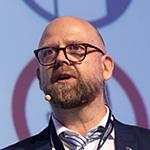
Project officer
Kim Drews is project officer at the European Union Agency for Railways, working primarily with Safety Culture and Human and Organisational Factors for the last five years. His main experience comes from more than 30 years within the railway domain, mainly within infrastructure maintenance.
Anthony Byrne

Head of Supervision & Enforcement
Anthony Byrne is a chartered civil engineer with 20+ years railway experience in both the UK and Ireland. As a Principal Inspector at the Irish NSA, Anthony is responsible for leading the team of Inspectors conducting supervision. Anthony is also involved in European and international cooperation. In 2019 Anthony obtained a master’s degree in Ergonomics / Human Factors from Loughborough University.
Beatrijs Claeys

Senior auditor
Beatrijs Claeys worked several years in the railway sector in which she took up different operational positions related to railway safety. From 2004 onwards she works within the Belgian National Safety Authority (DRSI), appointed at the Railway Undertakings department, where most of the time she performs supervision activities. As a senior auditor she cooperates with the different account holders in order to ensure a harmonized application of DRSI’s maturity model “safety management practices”.
Nathalie Namavar
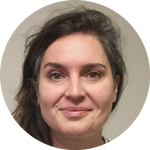
Project officer
Nathalie Namavar is working on the Agency safety culture programme. More specificly, she focuses on regulatory oversight in relation to safety culture. She also supports the classification and analysis of NIB accident investigations and the topic of organisational culture. She’s got a few years of operational experience mainly developing and improving safety management systems.
Giuseppe Ragusa
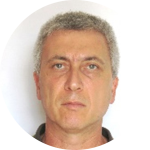
Engineer
Giuseppe Ragusa is an Italian engineer from TRENITALIA. He has worked for many years in management of RAMS in railway vehicles purchasing contracts. Since 2010 he has been involved in the standardisation on safety and maintenance for railway vehicle at national and European level with a solid background in the European legislation and different cooperation with CEN/CENELEC, CER and ERA. He is currently acting in TRENITALIA Technical Department as Project Officer for the certification of the entity in charge of maintenance.
Nathalie Duquenne

Engineer
Nathalie Duquenne is an engineer in industrial engineering and computer science. She worked for 11 years in the French Institute of Transport and took care of the safety assessment of track-guided transport systems. She has been a project officer at the European Union Agency for Railways since 2007, working on accident investigation, the common safety method for evaluating and assessing risks, and with certification of the entities in charge of maintenance.
Marc Geisler

Head of Assessment Body
Marc Geisler is a lead safety engineer from DB Systemtechnik, Germany. Marc has worked as a Safety Expert in all railway subsystems since 2002. Marc is currently acting as Head of the AsBo at DB Systemtechnik in Germany and as Technical Manager for Railway Approvals Ltd. UK.
Control of major risks in an automated urban railway network
The automation of the railway network requires a system-wide risk assessment to control the risks arising out of the digitalisation of operation.
For the suburban train services in Hamburg a GoA2+ train operation has been implemented. For this operation mode, ETCS has been installed in addition to the conventional signalling system. ETCS is required for ATO operation. The specification of ATO over ETCS has been used and is adopted to the specific requirements of the network in Hamburg. Next to the CCS the vehicles have been modified with technical devices for ATO. The operational rules for train operation of S-Bahn Hamburg have been amended accordingly. The main challenge of this project has been the assessment of changes in Control Command, Infrastructure, Rolling Stock and Operation in parallel. Finally after finishing the assessments for the structural and functional sub-systems a risk management process for Safe Integration ensured that all interfaces between the sub-systems are designed in a way that the level of safety is maintained.
The presentation gives an overview about the project “Digitale S-Bahn Hamburg”, the safety approach and how the safety assessment by the European Bodies is done.
Olivier Castellani

Project manager
Olivier Castellani is a French engineer from SNCF who worked for 11 years as a RAMS expert in the Rolling Stock Engineering Center. Since 2015, he is a project manager for the homologation of trains in foreign countries.
Both Marc and Olivier took part in the issuing of the common safety method (EU Regulations 402/2013 and 2015/1136) and to the update of the CENELEC standard on RAMS: EN 50126.
Clarisse Lagaize Davoine
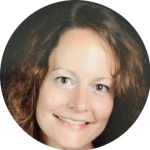
Project Officer - Human and Organisational Factors (HOF) Programme manager
Certified as an International Expert in Railway and Urban Transport Systems by the French higher school École des Ponts ParisTech, Clarisse Lagaize-Davoine started her career in the railway sector in 2004. She worked for the French National Safety Authority (NSA) for 14 years mainly as Head of Unit in the Supervision Directorate and then as project manager in the European Unit. Clarisse joined the Agency in 2019 working on Safety Management Systems, HOF and Safety Culture. She then became responsible for the HOF Programme in December 2023.
Improving ERTMS performance by integrating Human Organisational Factors (HOF)
The presentation explains how ERTMS performance can be improved by integrating Human and Organisational Factors. The topic is presented taking a systemic view. The aspects of human automation team-working, the changing role of staff in automated railway operation and human cognition, are described using an evidence-based approach. Starting with real-operational cases, the HOF toolkit is introduced as a potential solution.
Jayne Yeo
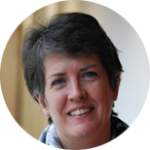
Project officer
Clarisse Lagaize Davoine and Jayne Yeo are project officers working on HOF topics at ERA. Clarisse is a safety expert with experience with a national railway regulator and in task analysis and health and safety within an RU and IM whereas Jayne is an organisational psychologist with a background in competency management, behaviour change and human resources.
- 17:00 - 17:15
- Move to next session
- 17:15 - 18:15
- Workshop Session B
Session A replicated
- 18:15 - 18:45
- Day 1 Closure
Steven Shorrock

Senior Specialist Safety and Human Factors
Steven Shorrock is a work psychologist and human factors engineer. Since 1997, he has worked on human factors and safety projects internationally, focusing on human work in safety-critical environments. He works at EUROCONTROL and is Editor-in-Chief of EUROCONTROL's HindSight magazine, on human and organisational factors in operations. He blogs at humanisticsystems.com.
Learning from all operations: Understanding the reality of work-as-done
The reality of 'work-as-done’ (how things really get done) by everyone, in front-line, support, and management roles, influences all aspects of rail safety. This talk will explore and demystify: a) the realities of human work at all levels, b) understanding the realities of work, and c) improving the realities of work. Learning from all operations (how things go, not just how things go wrong) should be the aim of all efforts to improve safety and other goals.
- 19:00
- Evening: Gala dinner
Day 2 : Safety Culture -
- 08:30 - 09:00
- Registration and coffee
- 09:00 - 10:15
- Day 2 Opening
Frank Guldenmund

Scientist
Dr. Frank Guldenmund is a Dutch psychologist working in the field of safety for nearly 30 years. Safety management, safety culture and people’s behaviour regarding safety have been on his mind ever since.
A famous anthropologist once stated: “Without men, no culture, certainly; but equally, and more significantly, without culture, no men.” Where does culture come from, and why is it so important for human beings? A very brief overview.
Bart Accou
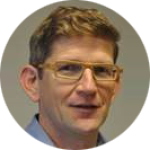
Head of Safety and Operations
As a civil engineer, Bart started his career at the Belgian railways (SNCB) in 1993, with the construction of the Eurostar terminal in the Brussels-Midi station. In 1994 he joined SNCB’s internal audit team where he reported to the CEO and the Board on procurement and other operational processes. From 2005 on he was responsible for the team that was auditing the safety management systems of both Infrabel (the Belgian infrastructure manager) and SNCB. Bart joined the European Railway Agency in September 2008 as project officer, working on classifying railway accident causes and guidance for writing accident investigation reports. In October 2009 he became head of the safety certification sector, in charge of the harmonisation of NSA and NIB activities, running their European network and developing an assessment scheme for monitoring their activities. From June 2013 to June 2017 Bart was Head of Methods and Safety for Infrabel, the Belgian Infrastructure Manager, where he was developing and implementing an integrated risk management system. Since June 2017, Bart re-joined the European Union Agency for Railway, where he is now leading the Safety and Operations team.
Esther Mateo

General Manager Safety, Security and Digital Transformation
Industrial Engineer
Qualified Industrial Engineer. Before joining Adif in 2010, Esther worked in the in the Aeronautical, Naval and Automotive private sectors. From 2010, Esther has held different positions of responsibility in Adif. As of September 2018, she became responsible for safety, security and digital transformation. From this position, she is leading transversal and transformative projects such as Adif's Digital Transformation Plan, Integral cybersecurity plan, Projects aiming at modernising maintenance and asset management, at improving the decision making in asset replacement and investment, Safety Culture as well as Human and Organisational Factors.
Key challenges to transform Adif’s safety culture
Improving safety represents a common goal, a goal we all share and work toward it. SIGMA is a transformative project, supporting the safety goals. SIGMA relies on the solid pillars of railway safety to continue improving it, focusing on railway professionals, and the context in which they carry out their work. ADIF is committed to foster a questioning and reporting culture in an atmosphere of trust, in a climate of just culture that allows learning from mistakes.
- 10:15 - 11:15
- Session 2: Rail safety experience feedback - Part 1: F1 Control major risks
Pedro Ferreira
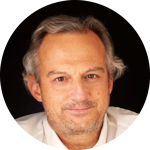
Chief Scientist
Pedro holds a PhD by the University of Nottingham, through which he developed extensive research and applied work in rail human factors and resilience, in particular applied to the area of railway engineering. He has over 20 years of experience as a researcher and a consultant in the railway, aviation, maritime and the oil & gas sectors, among others. Since 2015, he is a researcher (Joint Professor) at CENTEC (IST, University of Lisbon), and since 2019 he is a consultant and chief scientist at Novellus Solutions, in the UK.
Marc Geisler

Head of Assessment Body
Marc Geisler is a lead safety engineer from DB Systemtechnik, Germany. Marc has worked as a Safety Expert in all railway subsystems since 2002. Marc is currently acting as Head of the AsBo at DB Systemtechnik in Germany and as Technical Manager for Railway Approvals Ltd. UK.
Control of major risks in an automated urban railway network
The automation of the railway network requires a system-wide risk assessment to control the risks arising out of the digitalisation of operation.
For the suburban train services in Hamburg a GoA2+ train operation has been implemented. For this operation mode, ETCS has been installed in addition to the conventional signalling system. ETCS is required for ATO operation. The specification of ATO over ETCS has been used and is adopted to the specific requirements of the network in Hamburg. Next to the CCS the vehicles have been modified with technical devices for ATO. The operational rules for train operation of S-Bahn Hamburg have been amended accordingly. The main challenge of this project has been the assessment of changes in Control Command, Infrastructure, Rolling Stock and Operation in parallel. Finally after finishing the assessments for the structural and functional sub-systems a risk management process for Safe Integration ensured that all interfaces between the sub-systems are designed in a way that the level of safety is maintained.
The presentation gives an overview about the project “Digitale S-Bahn Hamburg”, the safety approach and how the safety assessment by the European Bodies is done.
Nora Balfe

Human Factors Specialist
Dr. Nora Balfe is a human factors specialist at Irish Rail. She has over 15 years of experience in human factors spanning the rail and aviation industries, academia and regulation. She is a visiting researcher at Trinity College Dublin and a Chartered Member of the UK Institute of Ergonomics and Human Factors.
My presentation will present three case studies of incidents in Irish Rail where the application of human factors and systems thinking provided a new perspective on the risks and how they may be best controlled. I will argue that a questioning attitude that incorporates HOF thinking is necessary in order to adequately control major risks.
- 11:15 - 11:45
- Coffee break
- 11:45 - 13:15
- Session 2: Rail safety experience feedback - Part 2: F2 Understand workplace reality
Pedro Ferreira

Chief Scientist
Pedro holds a PhD by the University of Nottingham, through which he developed extensive research and applied work in rail human factors and resilience, in particular applied to the area of railway engineering. He has over 20 years of experience as a researcher and a consultant in the railway, aviation, maritime and the oil & gas sectors, among others. Since 2015, he is a researcher (Joint Professor) at CENTEC (IST, University of Lisbon), and since 2019 he is a consultant and chief scientist at Novellus Solutions, in the UK.
Jo Van Weyenberg

Director Safety, Health & Certification
When in 2011 the independent railway company "SNCB Logistics" - today Lineas – was founded from the former freight division of the public company SNCB, Jo took on the challenge of heading the safety department. Before this, he held several leading positions in safety management for 15 years at bpost. In Jo’s vision, the human factor takes a prior place in safety policies and change management. He implemented this vision in the safety approach at Lineas.
Understanding Workplace Reality: Have a Good Chat!
Safety is everyone's priority. But how do we take the employer at his word? The evolution from "blame culture" to “just culture" is based on trust in profound communication with our people on the shop floor. Dialogue is a skill and we need a framework for dialogue in our processes. Learning through conversations with our employees is a first step to improve individual behaviour. But the ultimate aim is to structurally improve our processes, organization and culture.
Colin Bonnet

Head of section Scientific Bases
Colin Bonnet has a background in environmental engineering and has been working in the fields of risk management and safety for the past 15 years focusing on major accident prevention, development of the international regulation for the transport of dangerous goods by rail, as well as occurrence reporting and risk management of public transport in Switzerland (railways, cableways, ships, trams and buses).
Occurrence reporting and risk management by the Swiss National Safety Authority
NSA CH manages a database for the mandatory reporting of incidents in public transport. It analyses around 4 000 events reported each year and uses this information in its risk management process. This allows a risk-based optimisation of its safety supervision activities.
- 13:15 - 14:30
- Lunch break
- 14:30 - 15:30
- Session 3: Learning from safety critical sectors - Part 1: F3 Learn from experience
Enno Wiebe

CER Technical Director
Enno Wiebe is the Technical Director of the Brussels-based Community of European Railway and Infrastructure Companies (CER). After finishing his civil engineering studies at the University of Applied Sciences in Dresden, Germany, and the University of Cape Town, South Africa, he started his professional career at Deutsche Bahn and worked from 2007 until 2011 at UIC in Paris,France. At CER, he supervises the work in the technical domain of the association and manages the association’s role as representative body at ERA level.
Cristina Mateos Navarro

Sustainability Manager
Change driver, Cristina has been leading Health and Safety teams in industrial and service sectors for more than 20 years, when she had the opportunity to work in Human and Organisational Factors and create a Just Culture Project to transform the safety culture in her organisation. This new perspective has allowed her to make a progress in her professional career towards sustainability field where she is facing global and complex challenges related with ecological and just transition.
The transforming journey towards a just culture
The scope of my presentation is to share with participants my experience in leading a cultural transformation project in a 11 000 employees group, the sort of leadership needed to face this challenge, and the must of having a more holistic view to reach organizational learning.
Steven Shorrock

Senior Specialist Safety and Human Factors
Steven Shorrock is a work psychologist and human factors engineer. Since 1997, he has worked on human factors and safety projects internationally, focusing on human work in safety-critical environments. He works at EUROCONTROL and is Editor-in-Chief of EUROCONTROL's HindSight magazine, on human and organisational factors in operations. He blogs at humanisticsystems.com.
Learning from all operations: Understanding the reality of work-as-done
The reality of 'work-as-done’ (how things really get done) by everyone, in front-line, support, and management roles, influences all aspects of rail safety. This talk will explore and demystify: a) the realities of human work at all levels, b) understanding the realities of work, and c) improving the realities of work. Learning from all operations (how things go, not just how things go wrong) should be the aim of all efforts to improve safety and other goals.
- 15:30 - 16:00
- Coffee break
- 16:00 - 17:45
- Session 3: Learning from safety critical sectors - Part 2: F4 Integrate safety consistently
Enno Wiebe

CER Technical Director
Enno Wiebe is the Technical Director of the Brussels-based Community of European Railway and Infrastructure Companies (CER). After finishing his civil engineering studies at the University of Applied Sciences in Dresden, Germany, and the University of Cape Town, South Africa, he started his professional career at Deutsche Bahn and worked from 2007 until 2011 at UIC in Paris,France. At CER, he supervises the work in the technical domain of the association and manages the association’s role as representative body at ERA level.
Julia Behrend

Head of Safety Innovation and Human Cooperation
Dr. Julia Behrend is the Head of Safety Innovation & Human Cooperation at Air France’s Flight Safety Department. Julia aims to apply findings from cognitive science and neuroergonomics to safety for a better understanding of human performance in real-life situations. She serves as board member for the European Association for Aviation Psychology and is affiliated with the Department of Cognitive Studies at the Ecole Normale Supérieure, PSL Research University in Paris, France.
Safety innovation in aviation: Towards a proactive safety vision at Air France
What are the current and new challenges in aviation safety? Air France’s flight safety department proposes an innovative approach to deal with the challenges related to the future of flight safety. First, we will focus on new technologies and insights from research that can improve the performance of highly trained individuals. Second, we will show how to build the foundations of mental fitness and enhance psychological safety in high-risk environments.
Giulio Toccafondi

Healthcare Quality and Safety Manager
Giulio is patient safety and quality manager for the Center for Clinical Risk Management and Patient Safety of the Tuscany Region - WHO collaborating center in Human Factors and Communication for the Delivery of Safe and Quality Care. Lead coordinator of the technical group for the fight against Sepsis of Tuscany Region. Member of the executive committee of the Italian Society of Ergonomics and Human Factorsan. He authored scientific articles on communication in healthcare safety.
Managing safety in healthcare: First lessons from COVID
Managing safety in health care in time of pandemics challenged the safety system in place. In moments of strong stress, the cracks in a structure open, undermining its seal. However, where such cracks show themselves and what they reveal deserves an in-depth, open and free from conditioning analysis. The presentation outlines the new challenges and proposed novel ways to increase the overall level of safety
Andresa Hernandes

Head of Environmental, Health and Safety
Andresa has been active in environment, health, and safety for over 20 years. Andresa gained experience in multiple industries, including oil and gas and pharmaceuticals and food where she has achieved tangible results in improving EHS. Andresa has been with Siemens now for over 12 years, in various HSEQ positions. Today Andresa is the Head of EHS for Siemens Mobility, and committed to continually improving EHS performance through innovation, collaboration and leadership.
Learning and Growing as Safety Professionals
For several decades, the role of safety professionals was centered in ensuring compliance. In the world that we live and operate today, it is no longer enough. Safety professionals need different skills to support organizations and people to thrive in Volatility, Uncertainty, Complexity and Ambiguity world, moving from a compliance-oriented approach to a culture of care.
- 18:00 - 18:15
- Day 2 Closure
Jorge Delgado

Portuguese Secretary of State for Infrastructure
Jorge Delgado was born in 1967, in Viana do Castelo.
He graduated in Civil Engineering in 1990, completed his MsC in 1993 and his PhD in 2002 at Universidade do Porto.
Between 1990 and 1995 he worked as a senior designer in the area of Structures and Geotechnics.
In 1995, Jorge Delgado became part of the teaching staff at Instituto Politécnico de Viana do Castelo (IPVC). In IPVC he was Coordinator of the Bachelor and Master’s degree in Civil and Environmental Engineering, Member of the Pedagogical Council, President of the Assembly of Representatives and Member of the Scientific Council. During the 2004/05 biennium he was also Vice-Chairman of the Board of Directors and Director of the IPVC School of Technology and Management.
Jorge Delgado is author and co-author of several magazine publications and scientific and technical books in the area of Civil Engineering Structures.
From 2008 to 2012, he was member of the Board of Directors of Metro do Porto SA, responsible for Projects, Infrastructures and Technical Systems.
He provided consultancy for studies and projects in the area of Mobility and Transport, especially for Light Rail systems, between 2012 and 2015.
Between 2016 and 2017, he was a non-executive Chairman of the Board of Directors of Sociedade de Transportes Colectivos do Porto SA. From 2016 to 2019, Jorge Delgado was a non-executive chairman of TIP-Transportes Intermodais do Porto and executive chairman of Metro do Porto SA.
Jorge Delgado is the Secretary of State for Infrastructure since February 2019 (XXI Government and XXII Government).
Day 3 : Engaging maintenance partners in safety leadership -
- 08:30 - 09:00
- Registration and coffee
- 09:00 - 09:15
- Day 3 Opening
Pedro Moreira
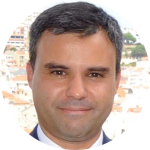
Vice-President
With a long career in the CP Group, started by taking a course in industrial maintenance and electromechanics technician, at Fernave, a training company totally owned by CP – Comboios de Portugal, took a degree in Electrical Engineering in Electronics & Computers and in Automation and Systems, at ISEP - Engineering Institute of Oporto, with also a PDE, a General Management Program for Senior Executives, at AESE-Business School, in Oporto.
His career was totally built in the area of maintenance of rolling stock, beginning as a maintenance technician, and after took a degree, as a maintenance engineer and maintenance manager, with responsibilities in the maintaining the DMU600 and DMU450, and also in the maintenance of CPA 4000, the tilting trains and at High Speed Maintenance Business Unit of CP, of which he was responsible before taking up his current management role at CP.
Currently, he is the Vice-President of the Board of Directors of CP, and the interim President.
- 09:15 - 10:45
- Session 4: Roles and responsibilities in maintenance
Nathalie Duquenne

Engineer
Nathalie Duquenne is an engineer in industrial engineering and computer science. She worked for 11 years in the French Institute of Transport and took care of the safety assessment of track-guided transport systems. She has been a project officer at the European Union Agency for Railways since 2007, working on accident investigation, the common safety method for evaluating and assessing risks, and with certification of the entities in charge of maintenance.
Aleksandra Perkuszewska

Project officer
Graduated from Faculty of Mathematics of Warsaw University in 2004, Aleksandra joined the Polish infrastructure manager PKP PLK. In 2005 she moved to the International Union of Railways (UIC) in Paris, where she was mainly responsible for the UIC Safety Database of railway accidents. After successful recruitment to the Agency in 2010, she continued working with safety-related data. For the last few years she deals with monitoring audits, risk assessment and ECM certification.
European regulation of the maintenance of vehicles: what is new?
The first step on certification of ECM was the regulation 445/2011 imposing a certificate to all ECMs maintaining freight wagons. After 7 years of implementation of this regulation, the majority of the railway stakeholders requested an extension of the certification to all ECMs. This resulted in the new regulation (EU) 2019/779.
Geoffrey Tresontani
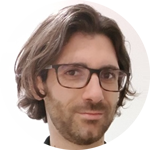
ECM Manager
French senior engineer, owner of Master in system engineering, management systems and innovation. I began in Packaging, Automotive and Tyre industry as industrial engineering manager in charge of process improvement, major investment projects and cost savings plans. Expert in risk management, for quality and safety aspects. ECM Manager for CFL cargo since 2012 (fleet of 2500 wagons), in charge of risk management related to configuration, maintenance and certification.
How does maintenance contributes to safety?
This presentation explains how maintenance of rolling stock contributes directly to the railway system performance especially: ensuring safety, increasing efficiency, improving reliability, increasing customer satisfaction, controlling costs.
Fabian Schmid
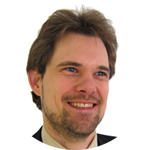
CEO and technical manager
Graduated as Mechanical Engineer at the University of Technology, Fabian did a PhD at the research laboratory of the Austrian Academy of Sciences in Trieste, Italy. Following that, he took a position as project engineer at a railway test centre in Austria. As a founding member of ERC, in 2010 he accepted the position of CEO, which he still holds today. He is participating in working groups of ERA and NBRail.
Impact of the new regulation on the activities conducted by the ECM certification bodies
The new ECM Regulation has kept its inner core, but also brought some new requirements. What has happened in the past, lessons learned, relation to current legal framework and how things change at the moment is presented in a realistic and constructively critical overview.
Marco Gallini
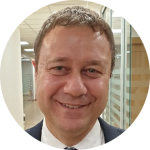
Head of Mobile Diagnostics and Maintenance Vehicles Department
Marco Gallini was born in Rome (Italy) on 15.08.1972. After his high school studies in Lausanne (Switzerland), he graduated in Civil Engineering at "La Sapienza" University of Rome. In his 22 years experience at RFI, he has been in charge of the O&M Unit in Bari, the Regional O&M Department in Naples, and the National Safety Department in Rome. Since 2017, he is serving as Head of the Mobile Diagnostics and Maintenance Vehicles Department in Rome.
From cyclical to predictive maintenance in railway infrastructures
The progressive increase of railway traffic and the consequent reduction of maintenance slots, as well as the request to improve reliability and safety of the network by decreasing costs, is leading to the adoption of plant solutions with increased RAMS parameters, as well as a progressive optimization of maintenance processes. The adoption of upgraded infrastructural components, of smarter maintenance vehicles and innovative measuring cars are vital to achieve the required targets.
- 10:45 - 11:15
- Coffee break
- 11:15 - 12:15
- Session 5 – Round table: The future of maintenance
Chair: Jean-Marie Dechamps

Team leader
Jean-Marie DECHAMPS has worked in railways for over 28 years. He is graduated in mechanical engineering and business administration in Belgium and has a long experience in train drivers and vehicle maintenance management. He joined the European Railway Agency in 2006. He is now involved in the management of the Agency portfolio of projects and services as well as in Certification of Entities in Charge of Maintenance and delivery of Vehicle Authorisations and Single Safety Certificates.
Valérie Nicaise

Head of Safety and Performance
With a mechanical engineer diploma, Valérie Nicaise started her career as project manager. This led her to work for several industries (automotive, automotive supplier, pharmaceutical, furniture industries) and several countries within Europe with always the same goal of integrating the constraints of the production line evolutions, the user’s aspects and the technical feasibility. She joined the rail industry in 2009, where she was first in charge of developing a maintenance network for car carrier wagons in Europe and to implement the ECM regulation. She joined Ermewa SA in 2018 as ECM Manager and head of Safety and Performance Department.
Mercedes Gutierrez

Infrastructure and TTI Senior Advisor
Mercedes is MSc Civil Engineer, specialised in transport planning, and Master’s degree in environmental and quality management systems. She has more than 20 years’ international experience in the development of transport infrastructures, primarily in the railway sector. Before joining the UIC, she worked at Adif as programme manager and technical advisor. Previously she worked in the European Investment Bank and in transport consultancy firms.
Raymond Groves

Services operational Safety Director
Formerly a railway consultant in the UK, Raymond moved to Paris in 2006 to head the Railway Safety function in Alstom. He is responsible for the definition of the Safety Management System as applicable to Maintenance, Parts, Modernisation and Train Operations for Rolling Stock, Infrastructure and Signalling systems. For UNIFE and CEN he has been involved in the development of the ECM Regulations, CSM Monitoring and Creation and modification of a maintenance plan.
- 12:15 - 13:00
- Closure
Ioanna Tsiaparikou

President
Graduate of the Department of Economics of the University of Piraeus, Master's Degree in International Transportation from the University of Wales - Cardiff and a PhD from the Department of Economics of the University of Piraeus, Greece. Professionally engaged in both the public and private sectors, holding senior positions for several years in the fields of maritime transport, social security, health, and public administration. President of RAS since 2017.
Alejandro Martínez Treceño
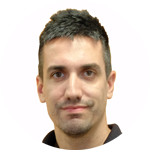
Secretariat of the Union
Born in Barcelona (Spain) on 16th March 1982, he began his studies in Industrial Engineering to work for several years in Railway Maintenance. Attracted by this sector, he continued his training with a Post Degree in Railway Engineering to finally become a Train Driver, his great passion. After 6 years driving trains in the Spanish state-owned company, he now represents his colleagues at national and European level as the head of the secretariat of the European train drivers' union (ALE).
Frank Guldenmund

Scientist
Dr. Frank Guldenmund is a Dutch psychologist working in the field of safety for nearly 30 years. Safety management, safety culture and people’s behaviour regarding safety have been on his mind ever since.
A famous anthropologist once stated: “Without men, no culture, certainly; but equally, and more significantly, without culture, no men.” Where does culture come from, and why is it so important for human beings? A very brief overview.
Damien Pallant
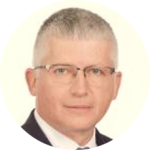
Chief Safety Officer
Graduated from the French National Civil Aviation School and holding an Executive Master's degree from the Paris Institute of Political Studies, Damien Pallant spent most of his career with Air France. In 22 years he rose through the ranks from First Officer to SVP in charge of Operational Performance. He joined SNCF in 2016 as the Group's Deputy Chief Safety Officer. In March 2020, he was appointed to the Executive Committee of SNCF Voyageurs as Chief Safety Officer.
Josef Doppelbauer

Executive director
Josef Doppelbauer took office in January 2015 and led the Agency to a new era as a European authority, where EU-wide vehicle authorisation, safety certification, and ERTMS trackside approval are granted.
ERA’s Executive Director is committed to a forward-looking approach and to making the railway system work better for society, while promoting the Agency, a respected authority, as the engine for change, driving the Single European Railway Area.
Josef Doppelbauer has more than 25 years experience in key aspects of railway technology, including signalling and control command systems. From 2012 to 2014, he was chairman of the European Rail Research Advisory Committee (ERRAC), the European technology platform of the rail sector. From 2011 to 2014, he was the chairman of the Steering Committee of the Joint Technology Initiative Shift2Rail. While at the helm of ERA, he has initiated the digital agenda of the Agency.
- 13:00 - 14:00
- Lunch break
Related documents
Opening_ Keynote Speeches
English (755.71 KB - PDF)European Rail Safety Climate Survey_ High Level Results and First Learnings
English (2.77 MB - PDF)Why leadership matters
English (1.06 MB - PDF)“I am Spartacus” – the power of true leaders
English (3.81 MB - PDF)How to develop rail safety leaders
English (3.04 MB - PDF)Workshop #2 – Learning from and acting upon the first European Rail Safety Climate Survey
English (4.85 MB - PDF)Workshop #3 – Take ownership to influence organisational and safety culture
English (1006.41 KB - PDF)Workshop #4 – Coaching_ Know Yourself – Self-Awareness for Strong Leadership
English (6.53 MB - PDF)Workshop #5 – How to integrate Human and Organisational Factors in railway investigations_
English (4.97 MB - PDF)Workshop #6 – What to consider when developing organisational just culture_
English (183.72 KB - PDF)Workshop #7 – Influencing safety culture_ how regulatory oversight can have a positive impact
English (1.66 MB - PDF)Workshop #8 – Safety critical components_ issues and methodology
English (1.19 MB - PDF)Workshop #9 – Risk assessment, interactive demonstration of practical application
English (598.54 KB - PDF)Workshop #10 – Human and Organisational Factors toolkit for change management
English (265.39 KB - PDF)The origins of culture
English (2.12 MB - PDF)Setting the scene_ The European Railway Safety Culture Model
English (201.73 KB - PDF)Key challenges to transform Adif’s safety culture
English (2.44 MB - PDF)Control of major risks in an automated urban railway network
English (1.91 MB - PDF)Beyond human error_ A Human and Organisational Factors approach to understand incidents and control major risks
English (599.1 KB - PDF)Understanding Workplace Reality_ Have a Good Chat!
English (1015.55 KB - PDF)Occurrence reporting and risk management by the Swiss National Safety Authority
English (8.36 MB - PDF)The transforming journey towards a just culture
English (711.17 KB - PDF)Learning from all operations_ Understanding the reality of work-as-done
English (1.31 MB - PDF)European regulation of the maintenance of vehicles_ what is new_
English (1.73 MB - PDF)How does maintenance contributes to safety?
English (1.54 MB - PDF)Impact of the new regulation on the activities conducted by the ECM certification bodies
English (1.72 MB - PDF)From cyclical to predictive maintenance in railway infrastructures
English (4.01 MB - PDF)Ermewa presentation
English (1.11 MB - PDF)UIC presentation
English (1.25 MB - PDF)Alstom presentation
English (1.06 MB - PDF)